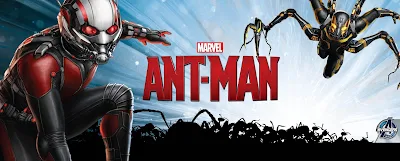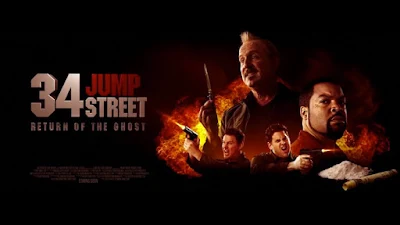From Digital Book World:
I see too many publishers placing too much importance and assigning dubious grades to authors based on the strength or weakness of their social media following. I’ve actually sat in several meetings with literary agents, acquisitions editors and marketing directors who asked misguided questions, such as:
• Is this author on Facebook and Twitter?
• How many followers do they have?
• How often does the author post and do they get many shares and retweets?
Making acquisitions and marketing decisions based in large part on an author’s social media popularity is like assigning grades to students based on their accent or physical attractiveness: it’s subjective and largely unrelated to the actual skillset needed to succeed.
You can read the whole thing here.
Augie Ray, a Director of Customer Strategy for a major corporation, has a pretty comprehensive article on how to do social media correctly here.
He also busts some social media myths:
Not only is reach falling but social has never succeeded in delivering reliable marketing scale, no matter how many case studies suggest otherwise. Social does not deliver purchasers (accounting for 1% of e-commerce sales, compared to 16% for email and 17% for CPC [cost per click]). Social delivers poor conversions (with a conversion rate of 1.17% compared to 2.04% for search and 2.18% for email). Social fails to deliver trust (with B2B buyers rating social media posts among the least important for establishing credibility and just 15% of consumers trusting social posts by companies or brands.) Nor is Social media a major factor in search engine rankings (placing dead last among the nine major factors affecting SEO [search engine optimization] according to MoZ’s 2015 Search Engine Ranking Factors report.)
Over at Without Bullshit, blogger Josh Bernoff argues that social media is only useful for certain products and brands:
Around 90% of brands are not worth talking about. Coca-cola is not worth talking about. Bank of America is not worth talking about. For lord’s sake, Comcast is not delivering experiences that they want you to talk about. For brands like these, social media is not a marketing channel.
Maybe 5% of brands are worth talking about. Apple and Harley-Davidson, for example, create experiences that generate discussion. Movies generate discussion. If you think this is you, it’s probably not, but you may be one of the few brands for which social media is a marketing channel.
Books would also, I'd think, fall within the 5% worth talking about.
He also busts some social media myths:
Not only is reach falling but social has never succeeded in delivering reliable marketing scale, no matter how many case studies suggest otherwise. Social does not deliver purchasers (accounting for 1% of e-commerce sales, compared to 16% for email and 17% for CPC [cost per click]). Social delivers poor conversions (with a conversion rate of 1.17% compared to 2.04% for search and 2.18% for email). Social fails to deliver trust (with B2B buyers rating social media posts among the least important for establishing credibility and just 15% of consumers trusting social posts by companies or brands.) Nor is Social media a major factor in search engine rankings (placing dead last among the nine major factors affecting SEO [search engine optimization] according to MoZ’s 2015 Search Engine Ranking Factors report.)
Over at Without Bullshit, blogger Josh Bernoff argues that social media is only useful for certain products and brands:
Around 90% of brands are not worth talking about. Coca-cola is not worth talking about. Bank of America is not worth talking about. For lord’s sake, Comcast is not delivering experiences that they want you to talk about. For brands like these, social media is not a marketing channel.
Maybe 5% of brands are worth talking about. Apple and Harley-Davidson, for example, create experiences that generate discussion. Movies generate discussion. If you think this is you, it’s probably not, but you may be one of the few brands for which social media is a marketing channel.
Books would also, I'd think, fall within the 5% worth talking about.
Publishers increasingly want you to have a massive social media presence. That's how they gauge the popularity and appeal of your work.
The article argues for a different approach: you should actually judge an author by their email list, their monthly website visits, their speaking schedule, and previous sales history.
Judging an author by their actual writing doesn't even make the list.
It's a business, so it's understandable that sales history is a key metric. People want what sells, and to dump what doesn't.
Publishers have never had the budget to promote all their authors, so lower end ones have to seriously hustle to get their books out there.
Nowadays, authors have more direct responsibility for self-promotion than ever and marketing has become a key aspect of what writers do.
So how does a publisher know whether or not an unpublished author is good at social media and marketing? The answer is that they won't, unless that person has already self-published and built a track record on their own. As such, it makes no sense for publishers to frown upon self-publishing, as many currently do.
The new paradigm reminds me of what happens in tech and comic books. Small companies and independent creators take the risks and develop and innovate and throw out new, risky ideas, while the big corporate behemoths and publishers sit back and wait to see what emerges successfully.
Why invest your limited resources in an unknown quantity when you can scoop up someone who is already successful, and practically guarantee profit? Which means the stigma of self-publishing has to fall away, at least for those above a certain sales threshold. Those authors are going to be the prey, and publishers the hunters. It will change the nature of book acquisition: why bother with slush piles of unknown material, or taking submissions at all, when you can troll through lists of self-publishing successes and spear yourself a best seller?
The only problem then for publishers is that they aren't needed. An indie writer who's already successful would have to be offered a sweet deal right out of the gate, with promises of serious cash for promotion, and access to connections and reviews that they don't have.
Publishers still have a great advantage in terms of prestige, industry connections, and cash. But the nature of the business is rapidly changing.
What does all this mean for the usual mantra that the best way to market your book is to write another book? And if a semi-annual book release on your website improves the number of visits, then the whole pressure for marketing is a mirage. If writing books sells books, then what are you writing on the website? The only thing you really should be doing is writing and releasing new novels and short stories.
























